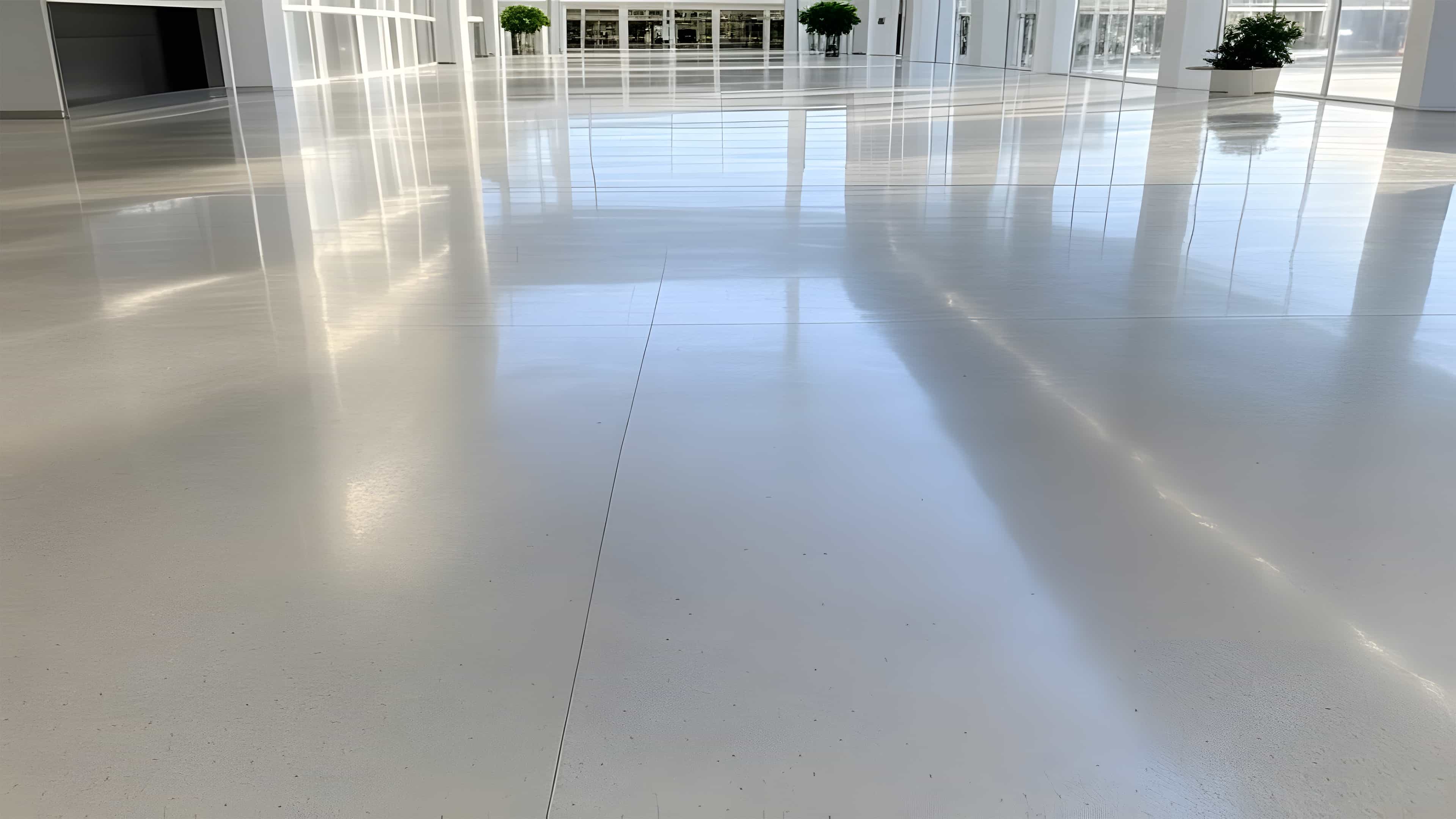
The Science Behind Epoxy Flooring: Unveiling Its Strength and Versatility - Advance Industrial Coatings
Epoxy flooring has rapidly gained traction in a myriad of industries, from automotive workshops to commercial spaces. But what is it about this flooring system that makes it so resilient and versatile? Let's dive into the captivating world of epoxy flooring and uncover the science behind epoxy flooring and the scientific principles that underpin its remarkable attributes.
Understanding the Composition of Epoxy Resin
At its core, epoxy resin is a polymer formed from the reaction of an epoxide "resin" and a polyamine "hardener." The epoxide group, a unique three-atom ring structure, is central to its chemistry. When these groups react with a curing agent, typically containing amine groups, these two components interact, a chemical reaction ensues, leading to the formation of a highly cross-linked, three-dimensional network and a rigid, durable material. This structure is what gives epoxy its renowned strength and durability, making it resistant to cracks, chips, and other forms of damage.
Curing Process and Mechanisms of Epoxy
The transformation of liquid epoxy resin into a solid form is known as the curing process. This curing process is pivotal, transforming the liquid epoxy into a solid, robust surface that can withstand significant wear and tear. Initiated by the addition of a curing agent, this is an exothermic reaction where the epoxide rings open and bond with the curing agent, creating a tight, interconnected network. Factors like temperature, the type of curing agent, and the ratio used can influence the curing time and the final properties of the epoxy.
The Science Behind Epoxy Flooring
Versatility in Applications
Epoxy flooring's unique composition and properties make it a prime candidate for diverse applications. Many different epoxy flooring products use specially designed combinations of epoxy resins and hardeners to further enhance their chemical resistance capability and durability. In the automotive industry, its resistance to chemicals and heavy machinery is invaluable. In commercial spaces, its aesthetic appeal combined with durability offers both functionality and style. The science behind the epoxy resin and its formulation ensures it caters to the specific needs of various sectors, from healthcare to manufacturing.
Properties of Cured Epoxy Resin
Several inherent properties of epoxy contribute to its widespread use:
- High Strength: Its cross-linked structure provides exceptional tensile strength.
- Chemical Resistance: Epoxy can resist a wide range of chemicals, making it an excellent choice for industrial settings.
- Thermal Stability: It can withstand higher temperatures without degrading.
- Adhesion: Epoxy can bond well to a variety of surfaces, from wood to metals.
- Anti-slip Properties: Additives can be incorporated to provide a textured finish, enhancing safety.
- Ease of Maintenance: Its seamless nature means there are no crevices for dirt or bacteria to hide, making cleaning a breeze.
Advancements in Epoxy Technology
The world of epoxy flooring is ever-evolving. With continuous research, new formulations are being developed that offer enhanced UV resistance, quicker curing times, more environment-friendly products, and even greater flexibility. These advancements not only expand the scope of epoxy's applications but also enhance its performance in existing ones.
Ready to transform your space?
Contact AI Coating today for a free consultation about your epoxy flooring needs.
The Future of Epoxy Flooring
As we look ahead, the horizon for epoxy flooring is promising. With ongoing research, we can anticipate even more durable formulations, eco-friendly options, and innovative applications. The marriage of science and technology promises to elevate epoxy flooring to new heights, ensuring it remains a top choice for industries worldwide.
Conclusion
Epoxy flooring stands as a testament to the wonders of science and innovation. Its strength, durability, and versatility are deeply rooted in its chemical composition and the scientific principles governing its behavior. As we continue to push the boundaries of what's possible, epoxy flooring will undoubtedly remain at the forefront, offering solutions that are both practical and aesthetically pleasing.
FAQs:
- What is epoxy flooring made of?Epoxy flooring is primarily composed of an epoxide resin and a polyamine hardener. When mixed, they undergo a chemical reaction, resulting in a solid, durable surface.
- How long does epoxy flooring last?With proper care and maintenance, epoxy flooring can last for decades, making it a long-term flooring solution.
- Can epoxy flooring be applied to existing concrete?Yes, epoxy flooring can be applied over existing concrete, provided the surface is clean, free of moisture, and properly prepped.
- Is epoxy flooring suitable for industrial environments?Absolutely! Epoxy flooring's chemical resistance, strength, and durability make it ideal for industrial settings where it can withstand heavy machinery, chemical spills, and high foot traffic.
- Can epoxy resin be used outdoors?Yes, but it's essential to choose an epoxy formulated for UV resistance to prevent yellowing and degradation.
- Is epoxy resin toxic?While liquid epoxy components can be harmful if ingested or come into contact with the skin, once cured, epoxy is generally considered safe and non-toxic.
Embracing the science behind epoxy flooring allows us to appreciate its capabilities and potential even more. Whether you're considering it for a commercial space or an industrial facility, understanding its foundation can help you make an informed decision.
AI Coating specializes in installing durable, sanitary, attractive, and easy to clean epoxy flooring for commercial spaces. Please contact us to learn more about our Floor Coating Services.